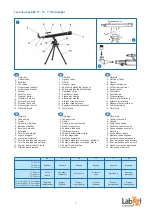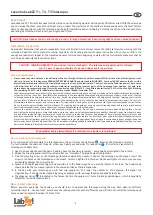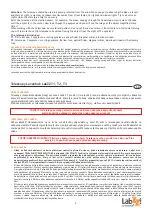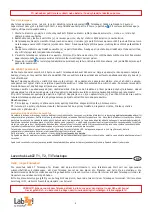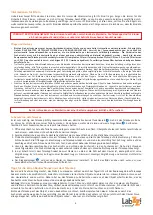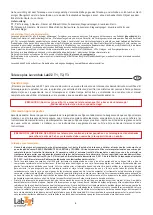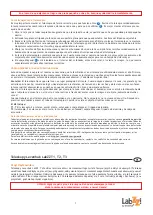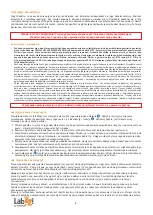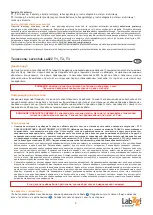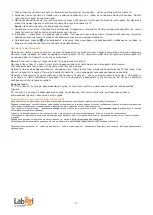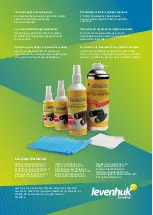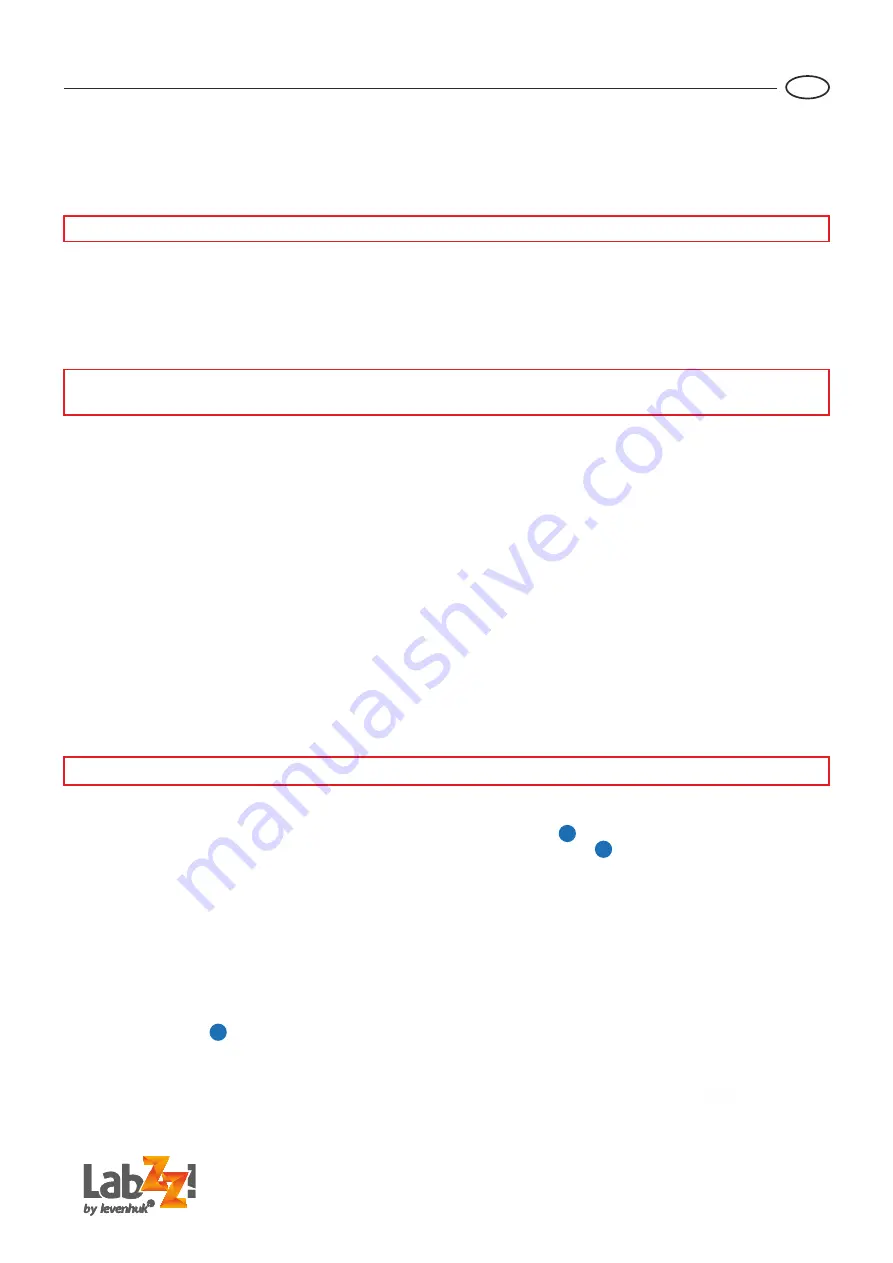
2
EN
Levenhuk LabZZ T1, T2, T3 Telescopes
Dear friend!
Levenhuk LabZZ T Series Telescopes for kids will open up the amazing world of exciting scientific discoveries! With the telescope
you can study the Moon, planets and bright stars, unravel the mysteries of the endless Cosmos and observe the most distant
objects. Your experience with the telescope will be both informative and entertaining. Carefully read the entire manual before
operating the telescope. Don't lose it; you might need it later.
Information for parents
Dear adults! Remember that you are responsible for your child at all times. Always ensure the child's safety when working with the
telescope. Read this entire manual carefully, especially the handling and maintenance instructions. Even if your child is old
enough and reads well, repeat all the rules aloud one more time before beginning to work with the instruments. Make sure that he
or she clearly understands these instructions.
Care and maintenance
CAUTION! CHOKING HAZARD! These devices include small parts. The telescopes are designed for children
over 5 years of age and should only be used under adult supervision.
џ
Never, under any circumstances, look directly at the Sun through this device without a special filter, or look at another bright source of
light or at a laser, as this may cause PERMANENT RETINAL DAMAGE and may lead to BLINDNESS. You should ONLY observe the Sun with a
professional solar aperture filter that completely covers the front of the instrument. The front end of the finderscope must be covered
with aluminum foil or other non-transparent material to protect the internal parts of the telescope from damage. For safe solar
observations we recommend using filters with an optical density (OD) of 5.0. Such filters transmit only 0.001% of the sun's light, blocking
the remaining 99.999%. Most reliable solar filters are made of Baader AstroSolar film.
џ
Take necessary precautions when using the device with children or others who have not read or who do not fully understand these instructions.
All parts will arrive in one box. Be careful when unpacking it. We recommend keeping the original shipping containers. In the event that the
telescope needs to be shipped to another location, having the proper shipping containers will help ensure that your telescope survives the
journey intact. Make sure all the parts are present in the packaging. Be sure to check the box carefully, as some parts are small. Do not try to
disassemble the device on your own for any reason. For repairs and cleaning of any kind, please contact your local specialized service center.
Do not touch the optical surfaces with your fingers. To clean the device exterior, use only special cleaning wipes and special optics cleaning
tools from Levenhuk. Do not use any corrosive or acetone-based fluids to clean the optics.
џ
Protect the device from sudden impact and excessive mechanical force. Do not apply excessive pressure when adjusting focus. Do not
overtighten the locking screws. Store the device in a dry, cool place away from hazardous acids and other chemicals, away from heaters, open
fire and other sources of high temperatures. If you are not using the device for extended periods of time, store the objective lenses and
eyepieces separately from it. Be careful during your observations, always replace the dust cover after you are finished with observations to
protect the device from dust and stains. Do not use the device for lengthy periods of time, or leave it unattended in direct sunlight. Keep the
device away from water and high humidity. The kit includes everything needed for assembly, but if you need some additional tool you can use a
basic set of standard instruments that almost everyone keeps at home.
CAUTION! Never look at the Sun and the sky around it through a telescope! It can ruin eyesight and even cause blindness!
It is very important to assemble the telescope correctly so it works the right way . Examine the telescope carefully.
Try to remember the names of its parts, where each part goes and what it's needed for . It's better to assemble the
telescope with adult help.
2
1
1.
2.
3.
4.
5.
6.
Open the box and put out all the parts. Double-check the box when it's empty
—
some small parts might still be in there.
Spread the tripod legs and install it on a flat surface so it is stable. The tripod height is adjustable.
Find the mounting screw on the telescope (located underneath). Loosen it and set the telescope on the mount. Insert the
screw in the holes on the telescope and the mount. Carefully tighten it. Attention: Do not overtighten the screw as you may
accidentally damage the screw thread.
Loosen the finderscope mounting screws and slide it in the finderscope base. Carefully tighten the screws. The finderscope
should be installed in a way so it points in the same direction as the telescope tube.
In the box with your telescope you will find two eyepieces. The lower the number on the eyepiece, the higher the
magnification. It's better to start observing using an eyepiece with low magnification and wide field of view.
The diagonal mirror is installed in the focuser before the eyepiece; it turns the image upside down, which is especially
helpful for terrestrial observations.
3
How to work with the telescope
Seek medical advice immediately if a small part or a battery is swallowed.
How to start observing
Before you start exploring the Cosmos, you should learn to operate the telescope during the day. First, observe different
terrestrial objects
—
houses, trees, antennas on the rooftops and many others! This way you will learn to control the telescope and
focus on desired objects. Besides, it's a lot of fun!


